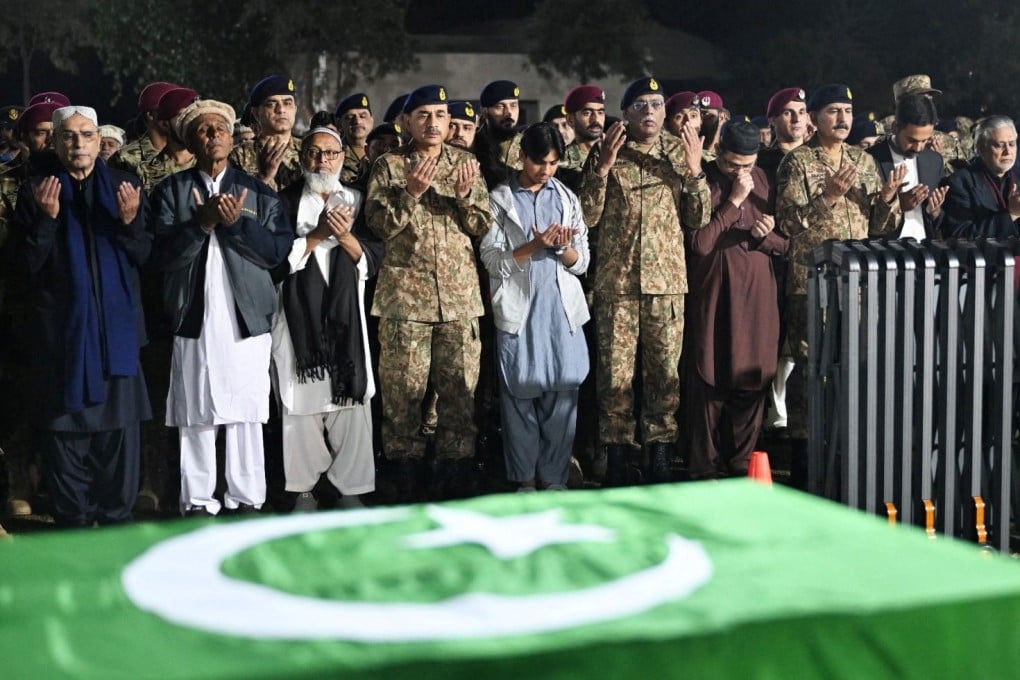‘Grave threat to security’: Pakistan justifies air strikes on Taliban rebels in Afghanistan
- Monday’s operation targeted the Hafiz Gul Bahadur militant faction, which claimed responsibility for the attack on a military outpost that left seven soldiers dead
- Pakistan has ‘repeatedly conveyed its serious concerns’ to the Afghan interim government over the presence of terrorist elements across the border

Pakistan’s ministry of foreign affairs described air strikes its military carried out on Monday as “intelligence-based anti-terrorist operations in the border regions inside Afghanistan”, after seven Pakistani soldiers were killed in an attack by Taliban rebels based in the neighbouring country.
Monday’s operation specifically targeted the Hafiz Gul Bahadur militant faction, a Tehreek-i-Taliban Pakistan (TTP) affiliate which claimed responsibility for Saturday’s lethal attack against a Pakistani military post.
Over the past two years, Pakistan “has repeatedly conveyed its serious concerns” to the Afghan interim government “over the presence of terror outfits including the TTP inside Afghanistan”, the foreign ministry said.

“These terrorists pose a grave threat to Pakistan’s security and have consistently used Afghan territory to launch terror attacks inside Pakistani territory,” it said.
Seven Pakistani soldiers, including a colonel and captain, were killed in the TTP attack in North Waziristan tribal district on Saturday, prompting President Asif Ali Zardari to warn that Pakistan would avenge their deaths.
Pakistan Air Force jets later conducted air strikes against TTP targets in the border Khost and Paktika provinces at around 3am local time on Monday, spokesmen for the TTP and Afghanistan’s Taliban regime said.
The Pakistani military on Monday said the recent wave of terrorism in the country “has the full support and assistance of Afghanistan”, adding that the TTP attack had been launched from across the border.